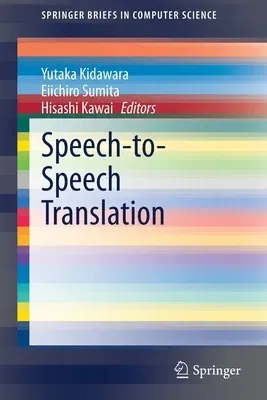This book provides the readers with retrospective and prospective views
with detailed explanations of component technologies, speech
recognition, language translation and speech synthesis.
Speech-to-speech translation system (S2S) enables to break language
barriers, i.e., communicate each other between any pair of person on the
glove, which is one of extreme dreams of humankind.
People, society, and economy connected by S2S will demonstrate explosive
growth without exception.
In 1986, Japan initiated basic research of S2S, then the idea spread
world-wide and were explored deeply by researchers during three
decades.
Now, we see S2S application on smartphone/tablet around the world.
Computational resources such as processors, memories, wireless
communication accelerate this computation-intensive systems and
accumulation of digital data of speech and language encourage recent
approaches based on machine learning.
Through field experiments after long research in laboratories, S2S
systems are being well-developed and now ready to utilized in daily
life.
Unique chapter of this book is end-2-end evaluation by comparing
system's performance and human competence. The effectiveness of the
system would be understood by the score of this evaluation.
The book will end with one of the next focus of S2S will be technology
of simultaneous interpretation for lecture, broadcast news and so on.

